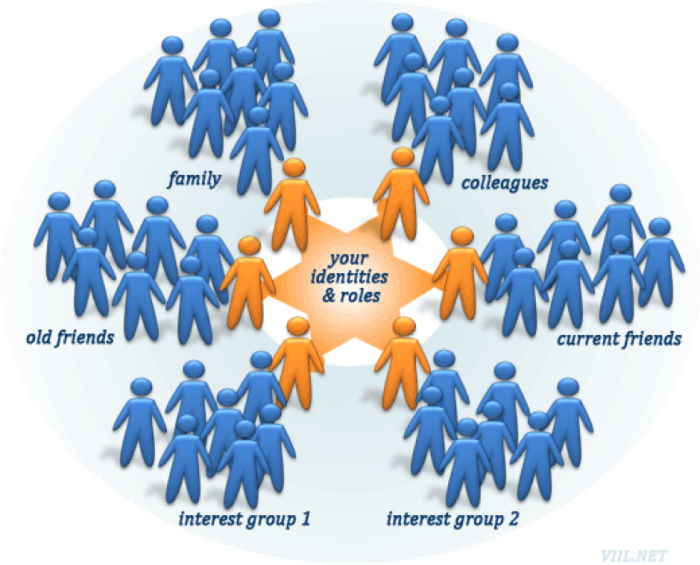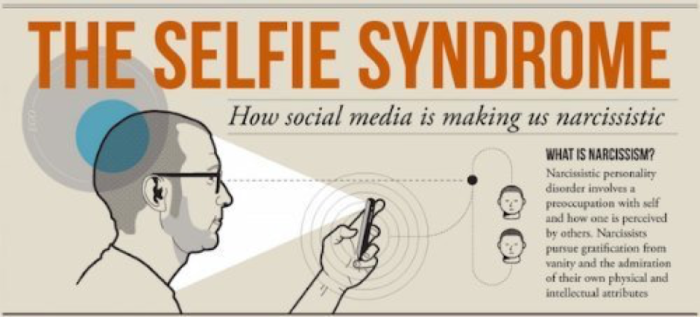Social network service, abbreviated as SNS, is an online public sphere that enables people building online relations among a large number of online users on the Internet. SNS also enables people sharing their common interests and activities. As we can see, a large number of people share their daily interests and activities on the online public sphere. Among a large number of the social network platform, Facebook is famous for popular appeal and the number of active users. As of 2013, 757m users are using the social platform daily (Sedghi 2014). Therefore, nowadays Facebook can be represented as a common online social platform.
Since Facebook became popular among people, a large number of users have joined Facebook. As Facebook accounts became a part of our identities, we may have different identities in between Facebook and real-life. For instance, he/she is an extraordinary person in real-world. On the other hand, however, he/she could be a narcissistic celebrity who communicates with millions of Facebook users and who has numerous online followers on Facebook. In this academic proposal, interesting questions what I would like to suggest are: Firstly, what are my identities and roles in between real-life and Facebook? Secondly, what is the relationship between narcissism and the way how we use Facebook and other social network platforms? Lastly, how does Facebook and other SNSs accentuate narcissism?

Ashmore and Jussim (1997, p. 7) state that an identity is affected by membership to a specific social group. Ashmore and Jussim (1997, p. 113) also state that the identity requires one to fulfil the role and expectation of such identity. Therefore, it can be defined as that an identity intersects at a social group. In other words, one’s identity can be actively adapted by group members and membership to particular social groups, such as actual life and Facebook. Furthermore, he/she can have not only a single identity, but also various identities.
Besides, Canary et. al’s 2003 study (cited in Shafie, Nayan and Osman 2012, p. 135) state that an online identity is unspecified, and has no relation to a real-world identity (or an offline identity). Canary et. al’s 2003 study (cited in Shafie, Nayan and Osman 2012, p. 135) also state that the online identity consists of online social identity and online personal identity, and is composed of symbolic communication and textual communication. In terms of how one can present oneself, Canary et. al’s 2003 study (cited in Shafie, Nayan and Osman 2012, p. 135) state that self-concept consists of personal and social aspects, and this lead to self-presentation.
Thus, it can be defined as that one’s online identity can be represented by self-representation and feedback such as texts and pictures, communications with other online users, and membership in a social group.
In terms of a barrier between online and offline identities, Shafie, Nayan and Osman (2012, p. 134) state that social network service causes invisible lines between youths’ online identities and offline identities. The researchers also argued that self-promotion and peer-perception influence youths’ online identities. In other words, self-promotion (such as selfies) and verbal communications between Facebook users affect their online identities.

According to a media research, which conducted a study of various Facebook and other social network service accounts, done by Buffardi and Campbell (2008, p. 1303), the researchers found that Narcissism on SNS intends higher levels of social activity in an online public sphere and more self-promoting contents in social network service. Buffardi and Campbell (2008, p. 1313) also found that the number of Facebook friends and wall-posts on a profile page is related to narcissism which also is practiced in real-life by having a large number of superficial relationships. Furthermore, Buffardi and Campbell (2008, p. 1305) also found that narcissists tend to choose charming self-promoting portraits for their main profile pictures for retrieving themselves from their negative characteristics in real-life.
In accordance with the academic studies as suggested above, these studies show that identities which are on social networking service, included Facebook, have no relations to real-life identities. Moreover, the secondary research data, sourced from those suggested studies, also indicates that SNSs accentuate narcissism. As written previously, this proposal shows the background knowledge of a selected topic related to media, and will lead to the way how media research can be conducted. By doing quantitative research that will be conducted in the future, the writer expects that his/her identities and identical preferences, which are in between SNSs (Facebook) and their real-lives, can be identified.
References
Ashmore, RD & Jussim, L 1997, Self and identity: Fundamental issues, Oxford University Press, Oxford.
Buffardi, LE & Campbell, WK 2008, ‘Narcissism and Social Networking Websites’, Personality and Social Psychology Bulletin, vol. 34, no. 10, pp. 1303-1324.
Sedghi, A 2014, ‘Facebook: 10 years of social networking, in numbers’, The Guardian, 4 February, viewed March 28, <http://www.theguardian.com/news/datablog/2014/feb/04/facebook-in-numbers-statistics>.
Shafie, LA, Nayan, S, & Osman, N 2012, ‘Constructing Identity through Facebook Profiles: Online Identity and Visual Impression Management of University Students in Malaysia’, Procedia – Social and Behavioral Sciences, vol. 65, no. International Congress on Interdisciplinary Business and Social Sciences 2012 (ICIBSoS 2012), pp. 134-140.
Further Reading
Green, RK 2013, ‘The Social Media Effect: Are You Really Who You Portray Online?’, The Huffington Post, 7 October, viewed March 30, <http://www.huffingtonpost.com/r-kay-green/the-social-media-effect-a_b_3721029.html>.